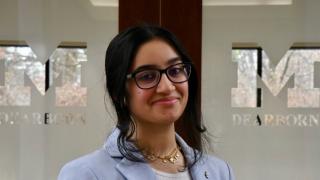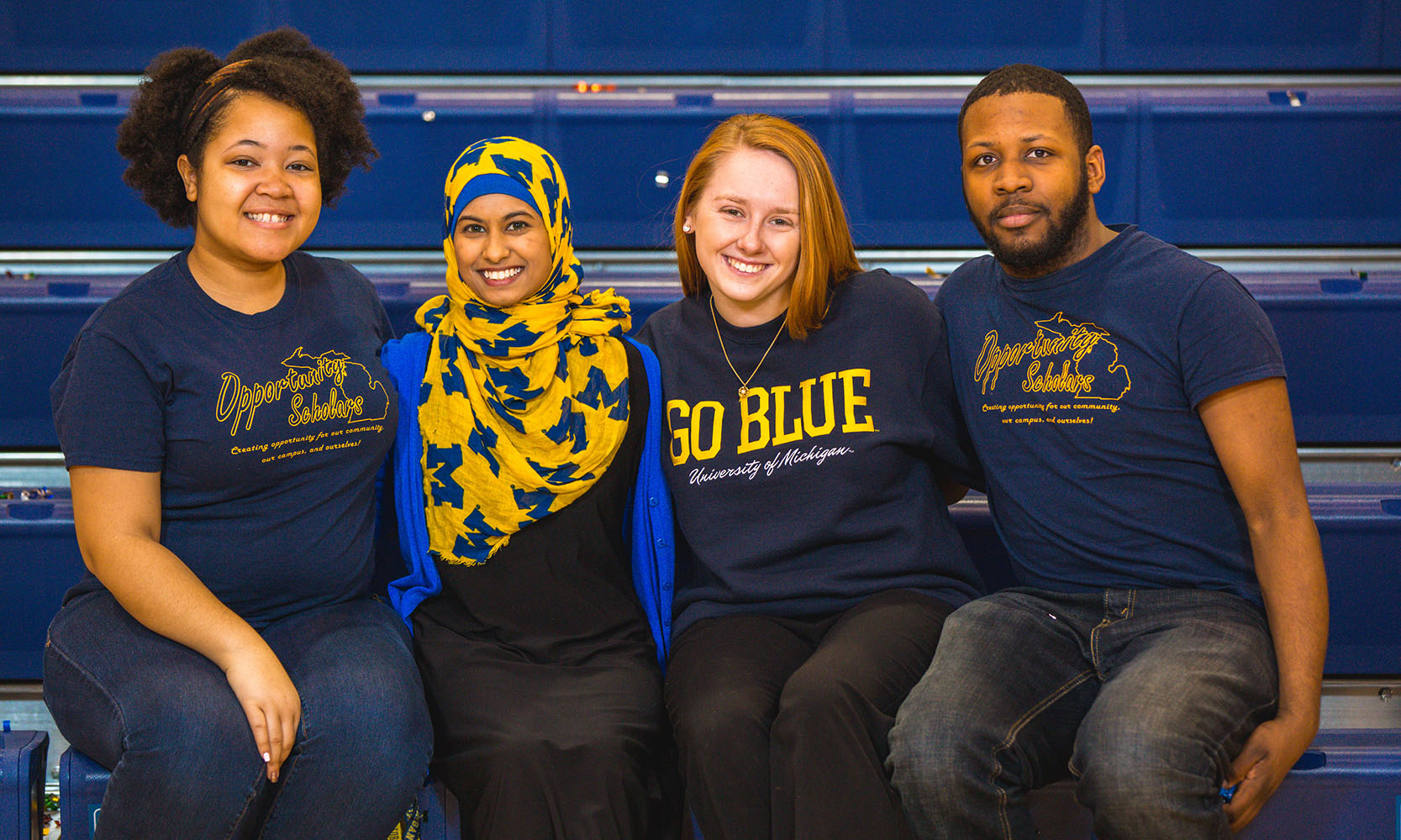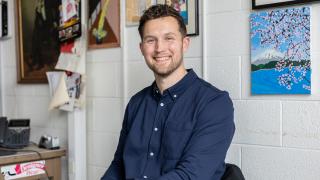
An Opportunity Scholars button is pinned to Rosa Gonzalez’s backpack. And a lanyard with those same two words is frequently worn around her neck.
Gonzalez, a first-generation college student pursing a business degree, said she’s proud to be a part of the Opportunity Scholars Program (OpScholars). And the reason she gives isn’t the merit-based scholarship the designation comes with—it’s the connections she’s made.
“When I first got to campus, I was nervous and wasn’t sure if it would be right for me,” said Gonzalez, who initially chose UM-Dearborn because of the close proximity to her family. “But once I learned about everything UM-Dearborn has to offer and met the amazing people here, I didn’t want to be anywhere else.”
She’s not alone.
Retention rate for the Opportunity Scholars Program (OpScholars)—which is a learning community started in 2007 for the highest achieving students from the state's most economically disadvantaged high schools—is the highest it has ever been at 85 percent. The 2016-2017 percentage is up 13 percent from four years ago, and it’s higher than the overall campus retention rate.
So what has changed?
In short, Office of Student Success Director Amy Finley said, “Everything.”
Finley said research repeatedly shows that university students who are more informed and engaged are higher achievers. The university also wanted to take a holistic approach to finding success.
“Instead of only giving academic resources, we are informing them about a variety of campus resources like the food pantry, counseling services, disability services and more. Because no matter how intelligent you are, if you have pressing issues in your life you cannot resolve, there’s a good chance your grades will be affected,” she said. “Our goal is to get students to and through their degree. This benefits not only our students, but—with 80 percent of our graduates staying in southeast Michigan—the region as a whole.”
The Office of Student Success hired Assistant Director Tyler Guenette to lead the OpScholars initiative in 2015. Since then, the team has worked to develop an environment within the office where students would be comfortable asking questions—not in a formal meeting way, more like getting advice from a trusted mentor.
To engage students, Guenette organized programming—with input from former OpScholars—around social engagement, metropolitan impact and academic excellence. Mentoring partnerships, Alternative Spring Break trips and an “Introduction to University Life” course are a few examples.
The Office of Student Success also enacted a required 20-point-per-semester system last fall, where incoming OpScholars—which made up 25 percent of the 2016-2017 freshman class—earned points for each educationally purposeful action they completed like attending a faculty’s office hours, hearing a campus speaker or participating in a community service project. After each activity, students wrote a reflection paper. The paper helped students with writing skills and critical thinking. And it helped Guenette identify potential struggles.
“They might write about being too hungry to concentrate or how they felt like they still don’t have an answer to a question they asked. When we see things like that, we reach out and see how we can help. Getting them acclimated and connected during the first year is crucial,” said Guenette, adding that students transition into the Talent Gateway’s gameful learning platform in their sophomore year. “Once they have a firm footing on campus, the Talent Gateway can begin to set them up for success for full-time work after graduation.”
Gonzalez said she’s benefited from this approach. She said she didn’t come to campus with the goal of getting involved. But after earning points for attending a student organization meeting, she joined; after planning an event, she led one; and after applying for a campus job, she was hired.
“I see how much I’ve grown in just a year. I know myself. I wouldn’t have done this, especially this early, if I wasn’t an OpScholar,” she said. “Sure, it’s fun to know a lot of people from getting involved. But it is also good for time management, testing your interests and gaining confidence in your abilities.”
Gonzalez feels like she is an important part the university. And that makes UM-Dearborn even more important to her.
“Everyone is so welcoming here. It is absolutely the right place for me,” she said. “I knew that college would prepare me for a good career, but I didn’t expect the overall effect it would have. This is about more than finding a good job, it’s preparation for a better life.”




